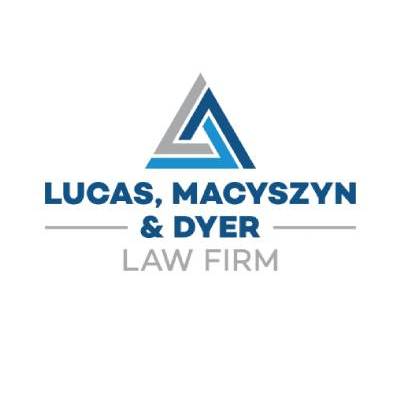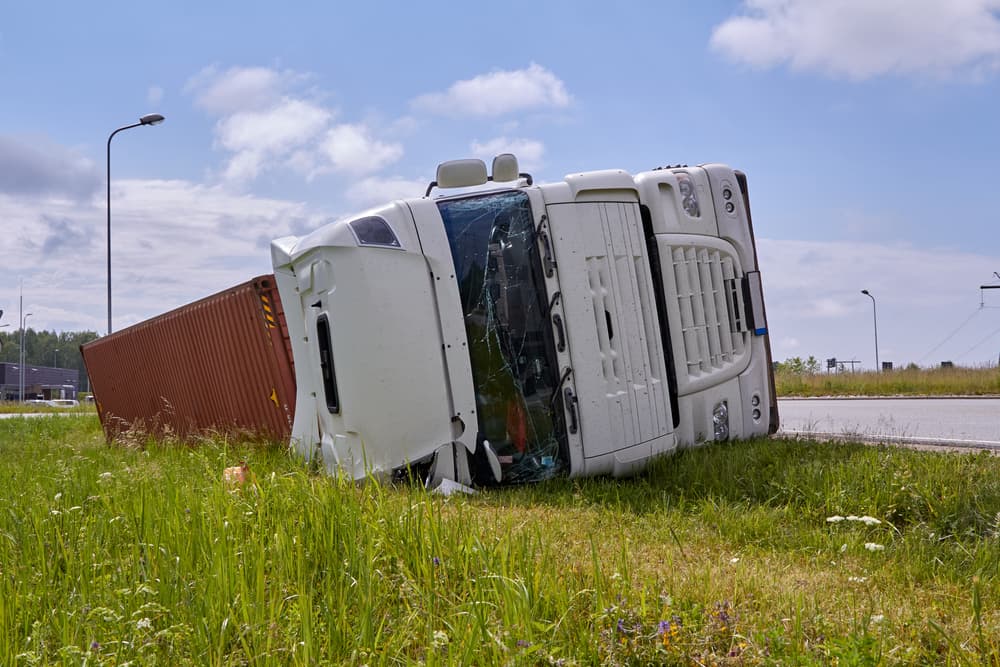
Getting hurt in a truck accident can be overwhelming. As you focus on healing from your injuries, you might face accusations from the truck driver or trucking company suggesting that you played a role in causing the accident. If so, you might wonder whether being partly to blame could affect your potential compensation.
Here’s what you should know about what this means for your injury claim and how a seasoned New Port Richey truck accident lawyer can defend your rights.
What Is Comparative or Contributory Negligence, and How Does It Work in Trucking Accidents?

The allocation of fault is significant in personal injury law. When an injury victim can prove that another party caused the harm they suffered, the victim can seek monetary compensation from the at-fault party.
Different jurisdictions use various negligence rules to determine the extent to which each party is responsible and how that influences the available compensation. These rules profoundly shape the potential outcomes of an injury case and reflect differing philosophies on fairness and responsibility.
Here’s what you need to know about the various negligence doctrines that could apply to your situation if you are partially at fault for a truck accident.
Pure Contributory Negligence
Pure contributory negligence doctrines are the harshest fault allocation laws. Only a handful of states adhere to this stringent liability rule. In a pure contributory negligence system, victims can’t recover any compensation if they contributed to an accident, no matter how insignificant.
This means even if you are only one percent at fault and the other party is 99 percent to blame for a truck accident, you could not recover any compensation for the harm you suffered.
Pure Comparative Negligence
Under a pure comparative negligence doctrine, accident victims can recover compensation even if they are as much as 99 percent at fault for the accident that harmed them.
However, in pure comparative systems, the amount of available compensation decreases based on the victim’s percentage of fault. In other words, the more victims contribute to an accident, the less compensation they can pursue for their injuries.
Modified Comparative Negligence – 50 Percent Bar
Modified comparative negligence systems fall between pure contributory and pure comparative negligence doctrines in their approach. Under this system, accident victims can still recover compensation if they are partially at fault, but only up to a certain threshold.
In modified comparative negligence states with 50 percent bars, victims can only recover compensation if they are less than 50 percent at fault for an accident. And, like in pure comparative negligence states, the compensation available to qualifying victims decreases based on their portion of the blame.
If a victim is 50 percent or more at fault for an accident in one of these jurisdictions, the law bars them entirely from recovering compensation.
Modified Contributory Negligence – 51 Percent Bar
Jurisdictions that follow modified comparative negligence doctrines with a 51 percent bar have a slightly more lenient threshold. Under this approach, victims can recover compensation if they are less than 51 percent at fault for an accident, though the available compensation decreases the more they contribute.
If a judge or jury finds that a victim in one of these states is 51 percent or more to blame, they are no longer eligible for compensation.
Slight vs. Gross Comparative Negligence
South Dakota is the only state that follows a slight vs. gross comparative negligence system. This approach doesn’t use percentages to allocate fault after injury accidents. Instead, this doctrine only differentiates between slight and gross negligence.
If a judge or jury determines that a victim’s contribution to a truck accident constitutes slight negligence and the other party is grossly negligent, the victim can seek compensation. However, if the victim was grossly negligent and the other party was only slightly negligent, the victim could lose their right to recover compensation.
What constitutes slight or gross negligence can vary considerably based on legal interpretations and specific case details.
Can I Still Recover Compensation If I Am Partially at Fault?
Yes. It’s distressing when another party accuses you of contributing to a truck accident, but that doesn’t mean you’re out of options. In many states, comparative negligence doctrines still allow injury victims to seek compensation for the harm they suffer in accidents if they are partially at fault.
Even in states with pure contributory negligence laws that prohibit recovery for any degree of fault, hiring a knowledgeable personal injury lawyer could help an injury victim challenge accusations of liability.
An experienced truck accident attorney familiar with the negligence laws in your area can build a robust case in your favor. They can gather and present useful evidence, challenge the other side’s claims, and make compelling arguments to limit your degree of fault. A seasoned lawyer can also fight back if the other party exaggerates your contribution to the accident, which is a common tactic to avoid liability.
Furthermore, a lawyer can handle negotiations with insurance adjusters, who often attempt to minimize payouts by shifting the blame to injured parties. With a reliable legal advocate by your side, you can push back against these tactics.
Your lawyer can level the playing field in your favor and prevent other parties from refusing to accept responsibility for their actions.
Remember that being partially at fault doesn’t always relieve the other party of responsibility. With a skilled attorney representing your interests, you stand a much better chance of recovering the compensation you are due, regardless of your contribution to the accident.
How Do Investigators Determine Fault in Trucking Accident Cases?
After a trucking accident, several parties might initiate investigations to determine who is liable for injuries and other damages from the accident. Law enforcement agencies typically arrive first on the scene to collect evidence, speak to witnesses, and draft initial accident reports. Subsequently, insurance companies representing the truck driver and other parties will also conduct investigations to determine liability and the extent of the damage.
Trucking companies and auto parts manufacturers might launch their own investigations, especially if they face potential liability. Lastly, personal injury attorneys representing victims will often initiate independent investigations to build strong cases for their clients.
Here’s how investigators determine fault in trucking accident cases:
- Scene Analysis: Immediately after an accident, investigators will visit the scene to gather physical evidence. This includes taking photographs, measuring skid marks, and noting the final resting positions of all vehicles. This scene analysis provides a visual record that is often instrumental in recreating the events leading up to a truck accident.
- Vehicle Inspection: Both the truck and other vehicles typically undergo inspections for mechanical issues, brake failures, tire defects, or any other faults that might have contributed to the accident.
- Trucking Log Review: Federal regulations require truck drivers to maintain logs detailing their hours on the road, rest periods, and other essential data. Truck accident investigators commonly review these logs to ascertain if truck driver’s fatigue or hours of service (HOS) violations played a role.
- Analysis of Onboard Recording Device Data: Many modern trucks have electronic systems that record data about speed, braking patterns, and other driving behaviors before and during traffic collisions. Investigators can use this data to piece together what caused the crash.
- Witness Interviews: Investigators often interview everyone in or near the accident, including eyewitnesses, to get perspectives on what happened. Witness statements can corroborate or challenge physical or digital evidence from the accident.
- Expert Consultations: In complex cases, investigators might consult experts like accident reconstructionist specialists. Using the available evidence, these professionals can generate detailed recreations of truck accidents to clarify the sequence of events and potential liability.
- Driver History Investigation: Investigators might look into the truck driver’s history if the driver’s actions contributed to the accident. Examining their driving record and training could reveal patterns of negligence or recklessness.
What if the Truck Driver Admits Fault at the Scene but Denies It Later?
The scene of a truck accident can be chaotic. Emotions run high, and people might say things they later retract for various reasons. Some drivers, including truck drivers, may admit fault initially and then backtrack as the reality of potential consequences sets in.
If a truck driver admits fault at the scene but denies it later, several considerations might come into play:
- Statements at the Scene: Any admission of fault at the scene could be powerful evidence. If witnesses heard the driver’s admission, you could use their testimonies to challenge the driver’s later denial. However, many jurisdictions recognize these types of statements as expressions of sympathy rather than admissions of guilt, so you might need a broader range of evidence to prove fault.
- Legal Representation: Truck drivers, especially those working for large trucking companies, often have legal teams advising them post-accident. These legal teams might instruct drivers to deny liability or avoid making definitive statements to protect their interests.
- Inconsistent Stories: If a truck driver’s narrative changes, you could leverage this inconsistency to challenge their credibility. An experienced attorney can highlight this type of back-and-forth during negotiations or at trial to cast doubt on the driver’s testimony.
It’s always wise to seek legal counsel immediately following a truck accident, especially if a truck driver admits and later denies responsibility. A seasoned attorney can appropriately document initial admissions of guilt and other vital evidence and utilize them to your advantage.
What Evidence Can I Use to Prove Fault in a Truck Accident Case?
In a truck accident case, robust evidence is the backbone of a compelling argument. If you’re facing potential liability, your lawyer can work relentlessly to identify and preserve evidence that limits your responsibility and highlights the other party’s fault.
This could include evidence such as:
- Accident Scene Photos: Photos of the accident’s aftermath can provide valuable information. They can depict vehicle positions, skid marks, road conditions, traffic signals, and any obstructions or hazards that might have contributed to the accident.
- Surveillance Footage: Cameras from nearby businesses, traffic lights, cell phones, or dash cams can capture a truck accident in real time, providing a clear view of the mechanics of the event.
- Witness Testimonies: Bystanders or other drivers who witnessed the truck accident can provide objective accounts of the events leading up to the crash. Their perspectives can reinforce your version of events and challenge any false or inconsistent statements by the other party.
- Truck’s Electronic Data: Many modern trucks have electronic logging devices and onboard computers that record data like speed, brake usage, and driving patterns. This information can pinpoint any erratic driving behaviors by the truck driver leading up to the accident.
- Truck Driver’s Logs: Federal regulations require truck drivers to keep logs of their driving hours. A review of these logs could reveal if the driver was drowsy in violation of regulations.
- Expert Testimonies: Accident reconstructionists or automotive experts can provide insight into the technical aspects of the crash. Their testimony can prove fault based on physics, vehicle dynamics, and the available evidence.
How Can a Lawyer Help If I’m Partially at Fault for a Trucking Accident?

Truck accident cases can be daunting, particularly when other parties accuse you of fault. Working with an experienced personal injury attorney can significantly increase your chances of securing a fair outcome.
Here’s how they can help:
- Investigating the truck accident to identify evidence and determine liability
- Gathering and preserving valuable evidence before it gets lost or destroyed
- Interviewing witnesses and securing their statements to support your case
- Analyzing medical records to establish the extent and cause of your injuries
- Collaborating with physicians and accident reconstruction experts to understand the dynamics of the truck accident and your subsequent injuries
- Calculating the total costs and long-term financial implications of your truck accident injuries
- Reviewing the truck driver’s logs and employment history
- Scrutinizing the trucking company’s safety records and maintenance logs
- Communicating with other parties, insurers, and lawyers on your behalf to protect you from potentially incriminating statements or admissions
- Negotiating aggressively with insurance companies and opposing counsel to maximize your settlement payout
- Representing you in court if the other side won’t agree to a fair settlement
- Challenging any evidence that might weaken your claim



